News
At Ododo’s inauguration, VP Shettima assures of Tinubu’s commitment to maximizing Kogi’s potentials

VP Shettima says Tinubu working towards optimising Kogi’s vast potentials
Vice President Kashim Shettima has told the people of Kogi State that the President, Bola Tinubu is committed to ensuring that the numerous solid minerals and other potentials of the state are maximally harnessed for the benefit of Nigeria and the state in particular.
Shettima spoke on Saturday during the inauguration of the new Governor of Kogi State, Alhaji Usman Ododo. He expressed that the administration would deliver dividends of good governance to the people of the state.
He said the “change of baton from one progressive to another will not disrupt the dividends of good governance”, noting that “Kogi State remains bound by the ideals and promises of a unified council of leaders and the largest party in Africa-” the All Progressives Congress (APC).
Ododo and his Deputy, Salifu Joel Oyibo were sworn in as Governor and Deputy Governor respectively, at the Muhammadu Buhari Square in Lokoja, the state capital.
Delivering his speech titled, “Standing Together, Standing for the People,” the Vice President conveyed what he described as the heartfelt goodwill of President Bola Ahmed Tinubu to the people of Kogi State, saying the President holds absolute confidence in Ododo as the new helmsman of the state.
He stated: “The President remains committed to collaborating to optimise the vast potentials of Kogi State and bring to fruition the aspirations of its illustrious people.
“This historic day is not an orphan; it is born from a collection of sacrifices and an inventory of commitments to serve the people. This historic day is the ultimate demonstration of faith in Alhaji Usman Ahmed Ododo, a man fit for the shoes he is about to step into”.
For the outgoing Governor, Yahaya Bello, VP Shettima described him by his nicknames, “indefatigable White Lion, the people’s lion” and pointed out that the historic inauguration of Ododo as his successor “is an eloquent referendum on” Bello’s stewardship.
“We are not here by accident, for none of us would ever escape our destiny. It’s this fatalism in our service to humanity that inspires our humility to stay on track. We are here merely because we are chosen by the people to represent their ideals.
“While political parties embody ideologies, it is the people who uphold the value system that appeals to our humanity, and Kogi State is fortunate to have our trusted patriots safeguarding their interests,” he added.
The VP further observed that Ododo is stepping in as the next Governor of Kogi at a time it may seem difficult “to assume a leadership position in Nigeria, especially as Nigeria adjusts to geopolitical events that have exerted pressure on our economy and the inherited greed and grievances that have threatened our national security”.
He however implored the Governor not to despair, stating that while “it is precisely during these tumultuous times that leaders of note prove their resilience.”
News
67 year old grandfather ordained Catholic priest
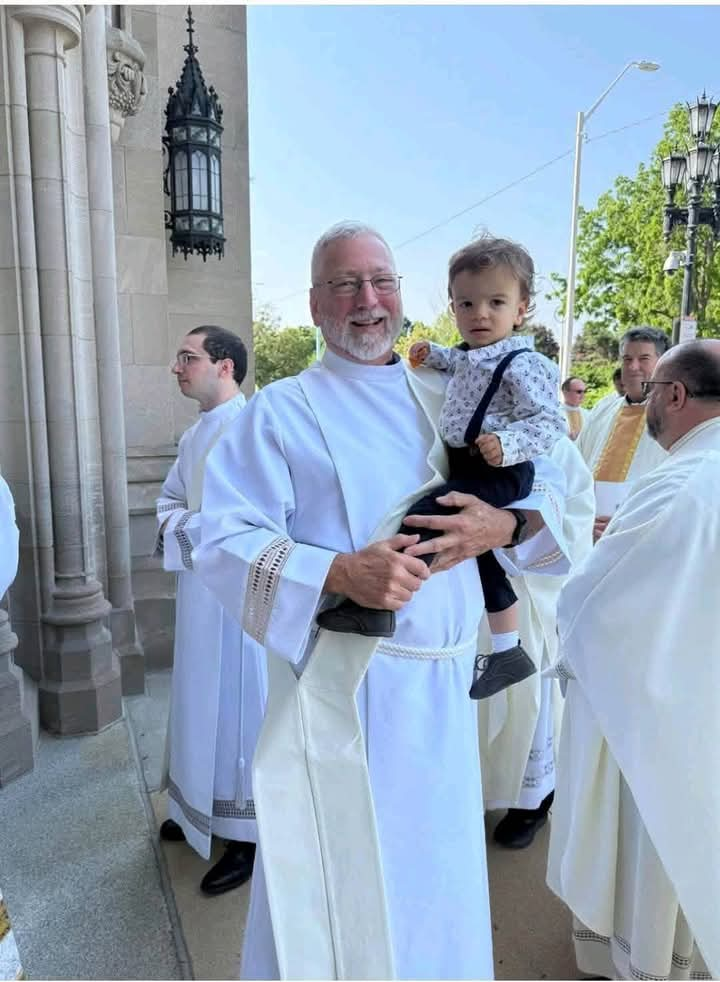
Last week Saturday, June 7, 2025, inside the Cathedral of the Most Blessed Sacrament in Detroit, Michigan, something happened that stunned the world.
As the choir sang and the incense rose, Deacon Patrick Bruen walked toward the altar to be ordained a Catholic priest.
But just moments before that sacred rite…
He held his grandson in his arms.
Fifty-five priests surrounded him, watching in awe.
Not one of them had ever held their own child or grandchild.
Because Roman Catholic priests don’t marry.
But Patrick Bruen once did.
He was married to Georgiana, the love of his life, for 41 years.
Together, they raised 3 children.
Welcomed 15 grandchildren.
Laughed. Prayed. Worked. Wept. Grew old.
And then… Georgiana died in 2020.
In the quiet heartbreak of widowhood, Patrick heard God call again.
This time, to the altar of sacrifice, not the altar of matrimony.
And he said yes.
At 67 years old, Patrick entered seminary formation.
And on June 7, 2025, Archbishop Allen H. Vigneron laid hands on him.
He became Father Pat Bruen, a priest of Jesus Christ, forever.

Now, he says “This is My Body” at the altar.
Two vocations. One faithful heart.

“Though our lives are different, the call is the same.”
Because vocation is not a moment. It’s a lifelong conversation with God.

This story is for you.
If you’ve ever felt too late…
Too broken…
Too far gone…
You’re not.
The priesthood isn’t just for the young.
It’s for the willing.
For the faithful.
For those who still dare to ask:

And have the courage to answer.
Welcome, Father Pat.
You once held your grandson.
Now, you hold the Eucharist.
You remind us all
#highlightseveryonefollowers2025シ゚viralfbreelsfypシ゚viral
#reelsviralシ
#CatholicChurch
#vatican.
We copied this story
News
Israel launches ‘Operation Rising Lion’ rains multiple strikes on Iran
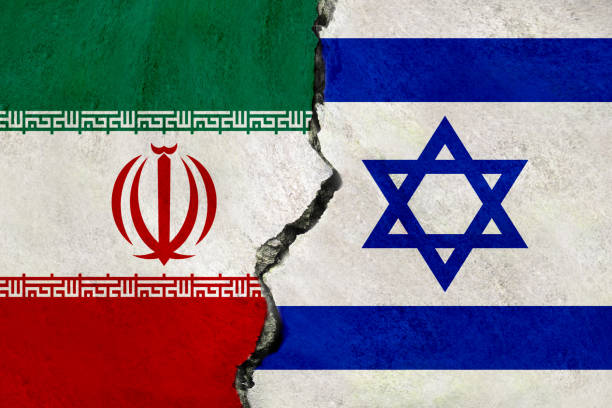
Israeli authorities launched dozens of airstrikes on Iran’s nuclear and military targets, killing two Iranian top military generals.
Its military said a “pre-emptive, precise, combined offensive based on high-quality intelligence” had been launched – called Operation Rising Lion.
“Dozens of IAF je first stage that included strikes on dozens of military targets, including nuclear targets in different areas of Iran,” said a statement.
Prime Minister Benjamin Netanyahu said the attack was to “roll back the Iranian threat to Israel’s very survival” and would last for “as many days as it takes to remove the threat”.
Iranian state media reported the head of the country’s powerful Revolutionary Guard, Hossein Salami, had been killed.
Mehr News said nuclear scientist Fereydoun Abbasi was also dead, as was theoretical physicist Dr Mohammed Mehdi Tehranchi and Major General Gholam Ali Rashid.
Iran’s media reported explosions northeast of capital Tehran early on Friday, and said buildings belonging to the armed forces were hit in the Mahalati complex north of the city.
The country’s Supreme leader, Ayatollah Ali Khamenei, warned of “severe punishment” and claimed residential areas had been targeted.
“In the enemy’s attacks, a number of commanders and scientists were martyred. Their successors and colleagues will immediately continue their duties,” said a statement reported by the Tasnim news agency.
News
June 12 and Nigeria’s Democratic Journey

By Victorson Agbenson
When Nigeria became an independent nation in 1960 neither the British colonial masters nor Nigerians themselves were sure of what was in stock for the new country. The amalgamation of 1914 had brought together, the Northern and the Southern protectorates, a deft but tricky political move which has continued to test the will and commitment of the people of the most populous black nation on earth. The tragic events that began to unfold shortly after the British union jack was lowered in 1960 was an offshoot of this complexity.
And so it was only six years down the line – in the early hours of January 15, 1966, that a group of five majors led a military revolt.
It took another thirty-something years in the wilderness of coups and counter coups, including a bitter civil war, before the country could find its way back on the path of democratic governance.
But this was not without a tough battle.
So, about thirty three years ago, on june 12, 1993, millions of Nigerians trooped out to vote in a landmark election that turned out to be the freest and fairest in our chequered history.
When the military annulled that election, eminent and patriotic Nigerians from all walks of life joined the struggle to restore Chief Moshood Kashimawo Abiola’s mandate and for democracy to return to Nigeria.
Some even paid the supreme price.
So in effect, democracy in Nigeria is still much at an infant, since it began to take root only in 1999 with the Abdulsalami – Obasanjo transition.
Democracy seems to have been over-described and over-defined.
But among the many definitions the most common, and yet most apt, remains government of the people, for the people and by the people, which was postulated by President Abraham Lincoln when he declared in a very critical time in America’s history that “the government of the people, for the people and by the people would not perish from the earth forever”
This description of democracy is one that captures the very idea of some form of organised system, with political parties and regular elections through which the will of the people is expressed.
Democracy has come to be accepted by many today as the most desirable form of government, and as man’s best idea on earth for governance. But unfortunately, the Nigerian democracy has been dogged by the challenge of corruption and bad governance – promoted by a systemic elite that has held tightly to power largely for the purpose of self enrichment.
It was our own Chief Emeka Anyaoku, Former Secretary General of Commonwealth, who pointed out the universal, essential ingredients that must be present in a true democracy. These he said, are “the right of the people to freely choose their governments periodically, the right to freedom of association, especially in forming political parties, the right to freedom of expression, especially freedom of speech and a free media, the primacy of the rule law, and the independence of the judiciary; transparency and accountability of governments to the electorate.”
Upon the return to democracy in 1999, the PDP breasted the tape and soon began to ride rough shod, often disregarding the feelings of Nigerians until it was voted out of power in the historic March 28, 2015 presidential elections. It failed to build an inclusive society, creating a few super rich political elite and their cronies which they are now paying dearly for.
The all Progressives Congress APC that took over has not fared much better as it has dawned on many watchers that Nigerians problem is not about the political platform or party but the inherent nature of politicians in the country.
No doubt, quality leadership has always been a problem in Nigeria. Celebrated writer, Late Chinua Achebe in his book The Trouble with Nigeria traced the nation’s woes to the door post of poor leadership.
Today Asiwaju Bola Tinubu, a prime actor in the pro- June struggle is on the saddle as the elected President of the country but his administration has been dogged by mounting economic challenges which he inherited and has been grappling with.
The coherence that is expected from those who run the levers of government and the cooperation in terms of achieving set goals have been largely lacking amongst the political class.
On the overall, we have been witnessing some form of improvements since the return to democracy.
Without controversy, the 2015 presidential election was a watershed in the history of Nigeria as for the first time an opposition party defeated and took over the reins of authority from an entrenched ruling party, the PDP since the country returned to democratic rule in 1999.
This keenly contested election was a big tussle on all fronts. It was a major test for the country as for the first time, major opposition parties fused to wrestle power from the ruling PDP. That is the beauty of democracy.
The legislative arm has also made some slow progress. During the Obasanjo years it was a case of whoever the president wanted became the Senate President and he removed them at will when they fell out of favour with him.
But today we have seen a more stable legislature which is the main bastion of democracy.
As things stand today, there is the urgent need for a new attitude amongst Nigerians elite.
Writing on Nigeria’s political journey, a prime pro democratic students leader during the June 12 struggle , Ezenwa Nwagwu wrote :
“If it was just about service delivery, the military actually held their own. They built bridges, and they built roads and hospitals. In fact, they built some of the most important and enduring infrastructure our country still relies on today. But there were incredible values that they inculcated – negative values, command-style leadership, suppression of dissent, and authoritarian thinking. It is for this reason that we fought to remove the military and entrench democracy”
Ezenwa says he prefers to focus on the attitude of Nigerian politicians:
“after 26 years, has the attitude of our politicians truly changed? Have we strengthened our processes and institutions? Have we built robust political parties—and just as importantly, a credible opposition? Is governance today more open and accountable? Or are we still struggling to shake off the negative values the military left behind?” On quote.
Already, our nation has been left behind by her contemporaries such as India, Malaysia, Brasil and Singapore. So we must all now insist on a sincere, focused and disciplined leadership that can lead us to the much desired manifest greatness. The way to go is rapid industrialization and diversification. The current administration has embarked on reforms sweeping across various sectors, a process that is still unfolding amidst rising economic challenges.
From the streets of protests to the corridors of government, the spirit of June 12 continues to shape nigeria’s democratic journey.
The labours of our heros past shall never be in vain.
Democracy is not a hundred meters dash , it is a journey and Nigeria is gallantly progressing on that journey!
LET’S CELEBRATE OUR DEMOCRATIC JOURNEY!
-

 News2 years ago
News2 years agoBreaking: Tinubu’s authentic ministerial nominees
-
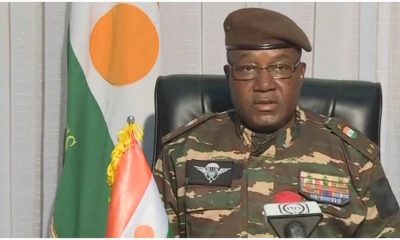
 News2 years ago
News2 years ago“Anytime we want to kill terrorists, President would ask us to take permission from France but they were killing our soldiers-” Niger Republic coup leader
-
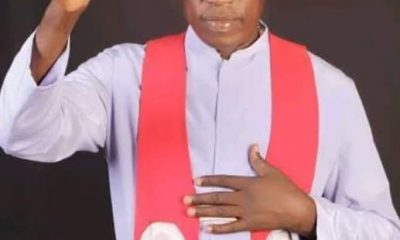
 News2 years ago
News2 years ago“I’m leaving the Catholic church because Bishop Onah is oppressing me,” says Okunerere
-

 News3 months ago
News3 months agoSenate to speed up conclusion of Nigeria Forest Security Service Bill
-
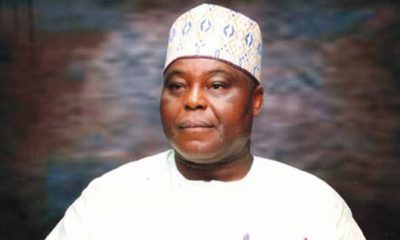
 News2 years ago
News2 years agoDokpesi and the Gazebo Mystique
-

 News2 years ago
News2 years agoRadio Nigeria’s veteran broadcaster Kelvin Ugwu dies three months after retirement from service
-
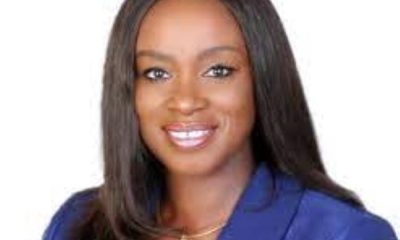
 News1 year ago
News1 year agoPersons against Allagoa’s reforms behind protests at NSITF
-

 News2 years ago
News2 years agoTsunami: Tinubu orders dissolution of managements, boards of MDAs, to sack all Buhari’s political appointees

